As I was trying to come up with today's topic, I kept hitting a snag. See, Tuesdays are supposed to be the day when I talk about media intended for children. The problem is that while I am exposed to a lot of kids' media now, due to spending my days wiping up applesauce and helping children find the potty, I really wasn't exposed to much as an actual child. The movies and stories that I actually grew up with are, by and large, not something one could call children's media by any stretch of the imagination.
I don't resent that. I don't think it screwed me up in some deep dark way. For the most part, anything actually inappropriate went way over my head, and what was left was all complex stories told very well. I don't regret that.
But it does pose a problem when I'm stuck thinking of a topic and I try to go back over the films I loved as a child and they're all like The Terminator or Terminator 2: Judgment Day or Chariots of Fire or A League of Their Own. Grownup movies for grownups that I happened to watch because I was curious and that had a profound impact on me.
So, eventually, in lieu of anything else to really talk about today, let's actually discuss one of these definitely not for children movies that defined my childhood. Let's talk about Lady Jane.
The plot is, for the record, incredibly historical and also incredibly obscure. It follows the story of Lady Jane Grey (a very young Helena Bonham Carter, in what I think was her first major film role) as she ascends to the throne of England, only to be deposed a scant nine days later. This is true. Lady Jane was a niece of Henry VIII and reigned directly after the death of his son, Edward. She had barely moved into the castle and been crowned when Mary Stuart led an uprising and deposed her, turning the nation back to Catholicism for a few years, eventually to be deposed in turn by her half-sister Elizabeth.
Right, so obscure British history from the part of history classes we all sort of collectively tuned out. The film takes advantage of our relative lack of knowledge and expands wildly on who Lady Jane actually was. We know a little about her from history, but mostly the film tries to extrapolate her personality and emotional state based on the few records of her we have left. We know that she was offered a pardon if she converted to Catholicism, and she refused.
We know that she was later beheaded. We also know that during her very short reign she enacted a series of social reforms that were immediately reversed but centuries later came to be commonly adopted. And we know that she was married to a nobleman of improper background and that he was not crowned king.
From these scraps, the filmmakers made a story that is compelling and incredibly emotionally satisfying, if perhaps not the happiest thing in the world. Our heroine, Jane, is a headstrong, brilliant, sheltered young woman of the nobility whose life is already progressing along a set path when we meet her. She's betrothed to her cousin Edward, whom she quite likes but who is very sickly. Jane is more intelligent than her family would really like her to be, and she keeps getting in the way of all of their blatant grabs for power. Incidentally, her parents are played by Sara Kestelman (from Zardoz) and Sir Patrick Stewart. So there's that.
Neither Jane nor Guilford are enthused about this plan, and for the first few months of their marriage they openly loathe each other. But, as time wears on, they fall in love. It's very sweet and romantic.
Unfortunately again, once Edward dies their lives are thrown into chaos. Jane is placed on the throne and crowned as quickly as possible, but she and Guilford decide not to have him crowned as well. Then her council tries to use her as a puppet to rule the country. Jane, however, being an educated and brilliant young woman, refuses to take that and enacts a series of reforms in the country: injustices she's dreamed of righting. She sets the prisoners free (because it says to do so in the Bible) and forces the royal mint onto the silver standard. She makes so many reforms that her council deserts her and decides the hell with it, they'd rather have Mary.
So, in a coup, Mary is made queen and Guilford and Jane are locked up in the tower. John Dudley, the schemer behind all of this, pretends to convert to Catholicism and is freed, while Jane's father, devastated with guilt over betraying his daughter, leads a revolt to try to rescue her and put her back on the throne. It fails, and Jane is blamed. After a long time in the Tower, where Jane and Guilford only get to see each other a few times, they are sentenced to death. Since neither of them will renounce their beliefs, they are both beheaded. The end.
Super upbeat story, right? You can definitely see why this is a movie that changed my life as a child. Totally understandable. No? Well then let me explain.
Lady Jane was one of the first female characters I saw who I could really imagine being. This was pre-Hermione Granger for me, pre-Rose Tyler and Martha Jones and Donna Noble, pre-Leslie Knope, pre-every other smart and idealistic girl hero I found to relate to. This was the first time I looked and I saw a girl who was a total nerd not only get the guy but also get to be queen, get to change the world, and get to win. Not technically, since she died, but ultimately. Historically. Lady Jane Grey was the first female character who I saw myself in and the first one who told me how powerful I could be without having to change who I was.
Because here's the thing: I have always been an idealistic nerd. Always. I have, over time, veered one direction or the other, but I've always been that sort of smarmy, Amnesty International-loving, irritating child who cared a lot about people but didn't know how to express it. And in Jane Grey I found my icon, the woman I could aspire to be. So what if she was just sixteen and she died horribly? She died horribly because she was so far ahead of her time and she died for something she believed in. I will never and apparently have never viewed that as a loss.
Not only that, but Lady Jane's greatest reforms, the ones that so enraged her council, are now some of the cornerstones of our society. She outlawed (if only for nine days) the debtor's prison: she made it illegal to jail people for being poor. She forgave all debts in the kingdom. She insisted that all money be on the gold standard and be actually worth as much as it was supposed to be.
What's even more interesting to me, actually, is the fact that she didn't do all this alone either. Some of these things were issues that Jane was already aware of, but one of the big subplots of the film is how she and Guilford change each other through the course of their marriage. When they meet, Jane is a quiet idealist nerd who doesn't really understand the world as it is and prefers to live in her head. Meanwhile, Guilford is a hedonistic drunk who knows all about the world and cares about it not one whit.
Their process of learning each others' point of view is actually how they come to fall in love. Jane learns about real injustice in the world. It's Guilford who tells her that in their England, a shilling is not actually worth a shilling, and that men are imprisoned simply for being unable to pay their debts. Debts that are, incidentally, incurred because the landowners hold all the power. And Jane teaches Guilford what it is to really believe in something. What it is to have faith and have it fully. What it means to walk in complete confidence, and what it means to give a damn.
They make each other better people, and together they change the world. Or at least the country for a little while.
I'm trying, but I feel like I don't have words for how much this movie meant to me as a kid. Because Jane is so flawed and yet so powerful. Because she is a queen. Not someone's wife or mother or daughter or a princess, but a queen in her own right. And that her husband could be fully supportive of that, not threatened or jealous, just in love and happy to be with her. I wanted that. I still want that.
But most of all, I think this movie changed the way I think about winning and about failing. In it, yes, we see Jane enact all of these wonderful reforms, but we also see them all reversed. We see her horribly punished for daring to think for herself. She's beaten, abused, and eventually killed for her beliefs. And yet...
I would never say that Jane fails in this movie. Because she doesn't. She never actually fails because she never compromises who she is. At times, the definition of who she is becomes broader and more inclusive, as a result of her relationship with Guilford, but it never is fundamentally altered. She is herself at the beginning and at the end.
And that's the crux of it for me, I think. The reason why this movie made me into who I am. It showed me that pursuing truth and justice is a good end in and of itself, no matter what comes of it or what comes of you. And it gave me a female character who is able to give herself fully to life, whatever comes of it. Plus, that female character got to be queen and to be married to 1986 Cary Elwes. Not exactly a harsh deal.
Not that the movie changed me, but that I didn't find a character like Lady Jane until I was eleven, and when I did find her, she died on me. Immediately. It speaks to the relative dearth of good female characters that I was exposed to as a child, and that hurts. Especially since I know for a fact that my parents were very conscious of the need to expose me to good media. They legitimately tried and yet I still felt a lack.
But, for all of this, I can't regret ever finding Lady Jane and the deep earthquake that happened in my heart when I did. I still have a crush on Guilford, and I still dream that someday I'm going to meet that perfect guy who wants to help me change the world, and who doesn't mind if I'm kind of opinionated and kickass. Most of all, though, the movie showed me that I don't need someone to help me be amazing. I am a queen in my own right, and it's up to me to rule and rule well.
So for all that Lady Jane is absolutely not a children's movie, in fact there's some light nudity and definitely adult themes (also a lot of death), I am so incredibly glad that I saw it as a kid. I needed this movie. And I hope that whatever movie it was you needed, you got to see. Because the stories we consume as children really do shape who we become.
Who shaped you?
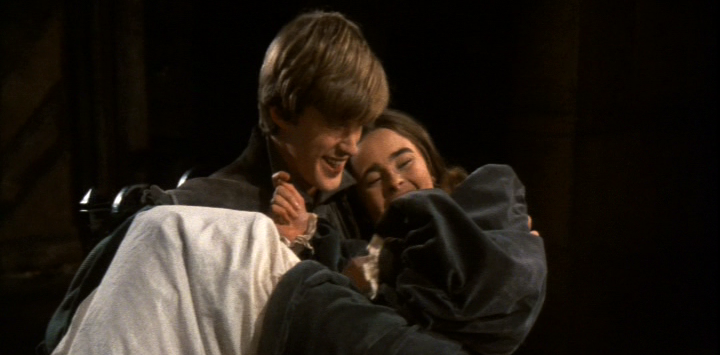 |
| Also I want someone I can be an idiot with. Like this. Adorable idiots. |


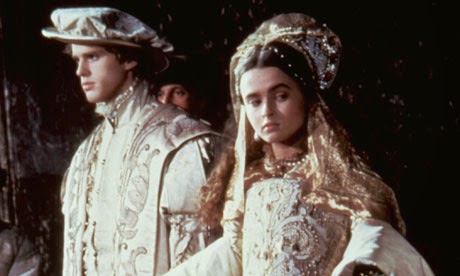

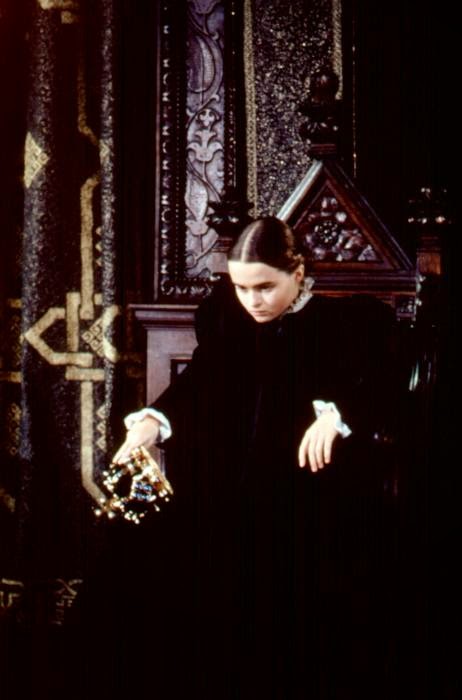
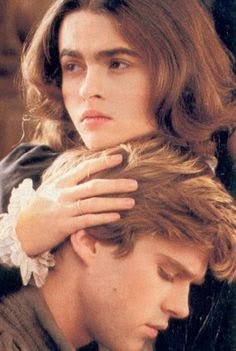

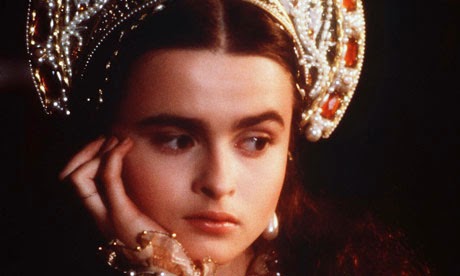
You've made me want to look this film up :) I had no idea that Lady Jane Grey had done all those reforms. I'd only heard of her 9 day reign. Wow. Queen for nine days and she tries to change the world. Wow.
ReplyDeleteAs for me, the movie that changed my life was Free Willy. I know, I know-that movie where the kid frees the whale and it jumps over a hill thingy and it's ridiculous. Except it wasn't, because even then I knew the ending was symbolic. That movie thought me a lot about the world. That there are greedy men in power that will only care about making money. That there were children without parents, children that had to steal in order to eat and were on the streets and when they committed crime it was because they were lost. The social worker was black, and that meant nothing to me as a kid-but looking back, I think it helped counter the harmful and racist depictions I saw elsewhere in the media. Randolf is an Aboriginal, and he shares his culture, but he is also a human being. Willy was a smart, intelligent animal who had feelings and agency-I feel like everyone in that movie had agency. That movie thought me that the world was not there for me use and profit from, that the world could be a cruel place but that there were people who did want to care for you, and that when you love someone, you have to do what's best for them, even if it means letting them go, or breaking a bunch of laws to set them free. It was just so powerful to see all the characters make their own choice to free Willy, on their own, and that includes Willy. I was so addicted to this movie I watched it every day for like, a year. I'm not kidding. I was six years old and I would come home from school and watch Free Willy again. The media we consume as children really is important.
That's super interesting! I find it so fascinating which movies resonate with us. Because I saw Free Willy when I was a kid too and I didn't get any of that out of it. Which is obviously not to say that it's not there. You really made me want to watch it again. Dang. But yeah, I missed all of that when I was a kid, yet this other really obscure historical film was what did it for me.
DeleteNow I have to go watch Free Willy again!
As a result, they have become much easier to be copied or downloaded on Watch Full 47 Meters Down Free - 123Movies.
ReplyDeleteSEXY MODEL ESCORTS SERVICE
ReplyDeleteMODEL ESCORTS CALL GIRLS
MODEL ESCORTS CALL GIRLS SERVICE KOLKATA
CALL GIRLS SERVICE KOLKATA
CALL GIRLS IN KOLKATA
KOLKATA CALL GIRLS
KOLKATA CALL GIRLS
CALL GIRLS KOLKATA
CALLL GIRL kolkata
FEMALE CALL GIRLS KOLKATA
FEMALE CALL GIRLS
SEXY CALL GIRLS SERVICE IN KOLKATA
ESCORTS SERVICE IN KOLKATA
KOLKATA FEMALE ESCORT SERVICE
TOP ESCORTS SERVICE KOLKATA
BEST KOLKATA ESCORTS SERVICE
CALL GIRLS SERVICE
ESCORTS SERVICE
ESCORT SERVICE
ESCORTS SERVICE IN KOLKATA
BENGOLI ESCORTS GIRLS
BENGOLI CALL GIRLS KOLKATA
KOLKATA ESCORTS SERVICE
FREE ESCORTS SERVICE KOLKATA
FREE WHATSAAP NUMBER ESCORTS
FREE WHATSAAP NUMBER OF CALL GIRLS
PHONE NUMBER OF ESCORTS SERVICE
FREE PHONE NUMBER ESCORTS SERVICE
MOBILE NUMBER OF ESCORTS SERVICE